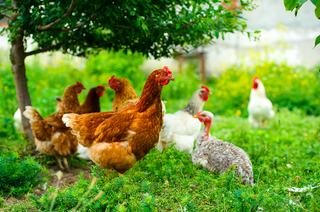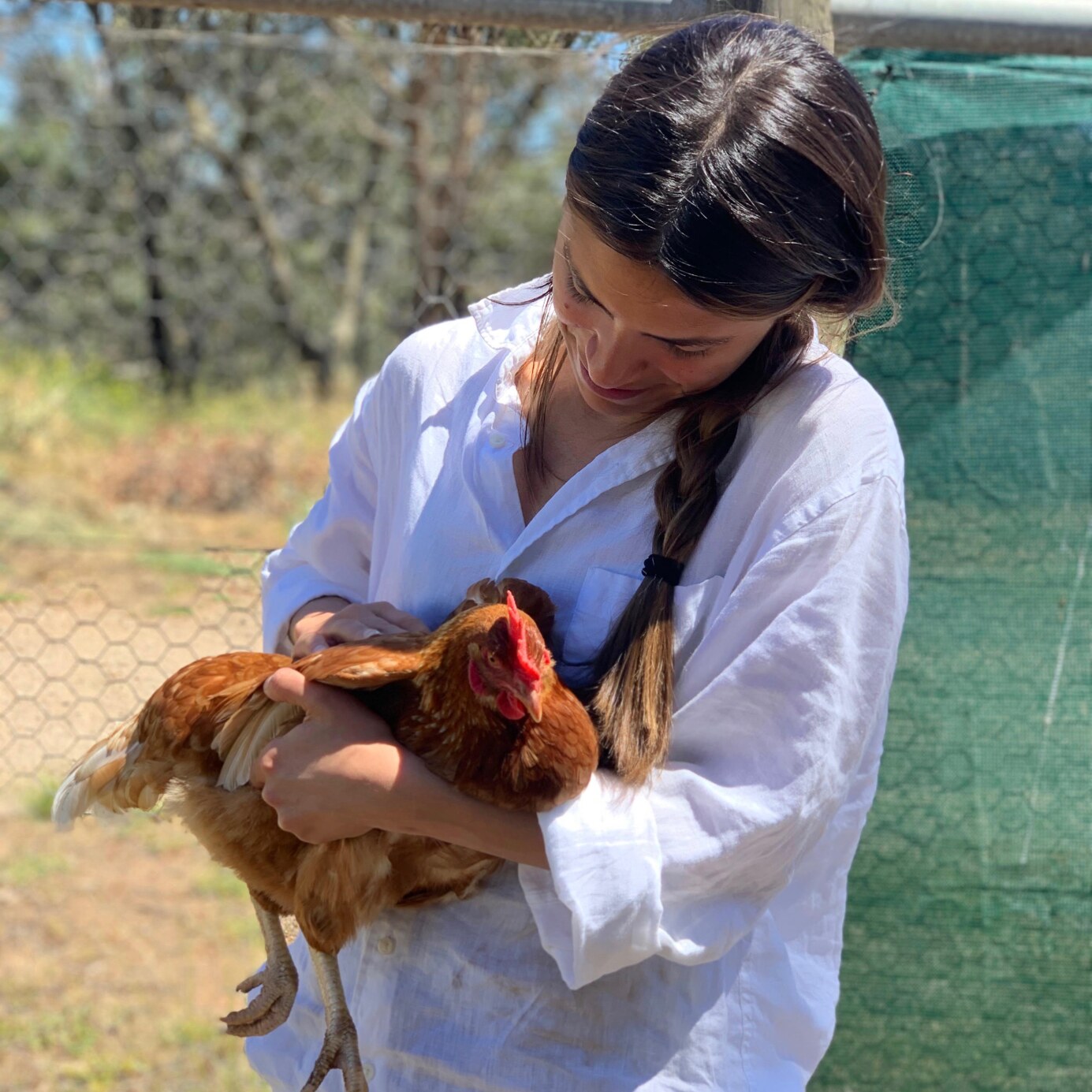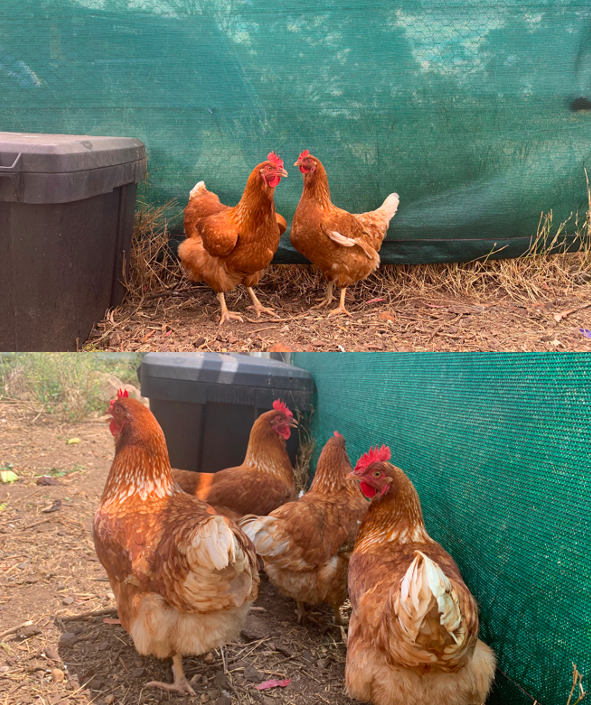Chicken Coop Must-Haves


5 Features of Every Successful Chicken Coop
If you want to keep the eggnog flowing even after the Christmas holidays end, it might be time to invest in some chickens.
Chooks are wonderful because they are low maintenance, take up very little space (you can even run chickens in your city backyard), and provide delicious eggs year-round. They also make excellent pets, and are great for giving kids an introduction to caring for animals before they graduate to a bigger, more complicated pet like a dog or horse.
Farmbuy's head of marketing, Inessa Alves, snuggling up with one of our chooks
Although chickens are relatively straightforward to look after, you still need to put in effort to keep them healthy and happy, as with any animal. So what do your chooks need to ensure they stay well and can provide you with farm-fresh eggs for years to come? Read on to find out...
Chickens need:
1. A shelter with perches
The first and most obvious necessity for your chickens will be the quintessential 'chook house'. Their coop will provide them with shelter in all seasons, offer a place to eat, drink and sleep, and keep them safe from predators at night. You will also quickly learn the truth of the saying 'chickens come home to roost'. Within a few weeks, your chooks will recognise the coop as their own, and head to their perches every night as the sun is setting.
Chooks aren't picky, so you shouldn't feel the need to spend a fortune on an expensive coop. Ours is made form cubby house that we picked up from the tip and altered slightly, and it has been housing happy, healthy chooks for 10 years now! A good coop should be dry, well-ventilated and warm in winter, but beyond that, you're limited only by your imagination.
Our chook house, which had a previous life as a children's cubby house
Although it might be tempting to allow your chooks to sleep in their cosy, hay-filled nests (which young hens often want to do), chickens should actually spend the night on raised perches. This fulfils their natural instinct to roost on high tree branches at night.
Your perches only need to be a few inches off the ground to be effective. You can also feel free to include multiple perches in your hen house, as we have done, to ensure all your chickens have room to roost.
Chooks on their perches
Unfortunately, chickens have a lot of predators, and hungry dog, cat or fox can spell disaster. Be sure to have a gated pen with a high fence and a hen house with a door that you can close at night. If you think birds may pose a threat to your brood or otherwise cause nuisance by stealing food and eggs, it may be worth hanging some netting over the top of your chook pen as well; this will ensure security from above.
2. Pellets, water and shell grit
Food and water are obvious must-haves for any animal enclosure. However, because chooks naturally scratch and peck, they need special feeders; the kind of bowl that you would use for feeding a dog or a cat won't cut it. We use hanging feeders and an auto-fill water bowl, which needs to be cleaned regularly of hay and other detritus.
In addition to their regular pellets, your chooks will be happy to help you out by devouring any leftovers or table scraps you have lying around. Keep this list of foods chickens cannot eat in mind when providing your flock with treats from the kitchen, but our chooks pretty much ensure we have no organic waste, which is a great feeling!
One quirky feature of chickens is that because they don't have teeth, they need grit (found naturally in the form of tiny pebbles) to help them digest their food. This is typically provided to them in the form of 'shell grit', crushed-up seashells which aid in digestion and provide calcium for egg production.
3. Nesting boxes
Chickens like to have small nesting areas of about 30x30cm available to lay their eggs. These should be lined with straw or a similar material, which will need to be changed regularly to ensure that your hens are comfortable and the eggs are clean when you collect them.
Our nesting box, accessible from both inside and outside the chook house
We have previously had larger flocks of chickens, so we have three nesting boxes, but in general one box per 4-5 hens is a good guiding ratio. They're good at sharing!
4. Room to roam
Ideally, your chickens will have at least some free-range time daily to roam around your property, stretch their legs and snack on bugs and other delicacies. However, if you don't have enough land to allow for this and your chooks are confined to a coop and a chicken run, try to allow for at least 1 m² of space per chicken.
5. Shade
During scorching Aussie summers, your chooks want to keep cool, just like you do. They may not have access to a swimming pool or an A/C unit, but you can make sure that they can get out of the sun and cool off!
We've hung a piece of shade cloth from the side of our chicken run, which casts a lovely shadow that the chooks can rest in on hot days. Our nesting boxes also jut out from the side of the chook house, providing some extra shade for the ladies.
The chooks relaxing in the shadow of our shade cloth
You can get creative with providing shade for your chooks; as long as they have some place to go to get out of the sun, they'll be grateful.













